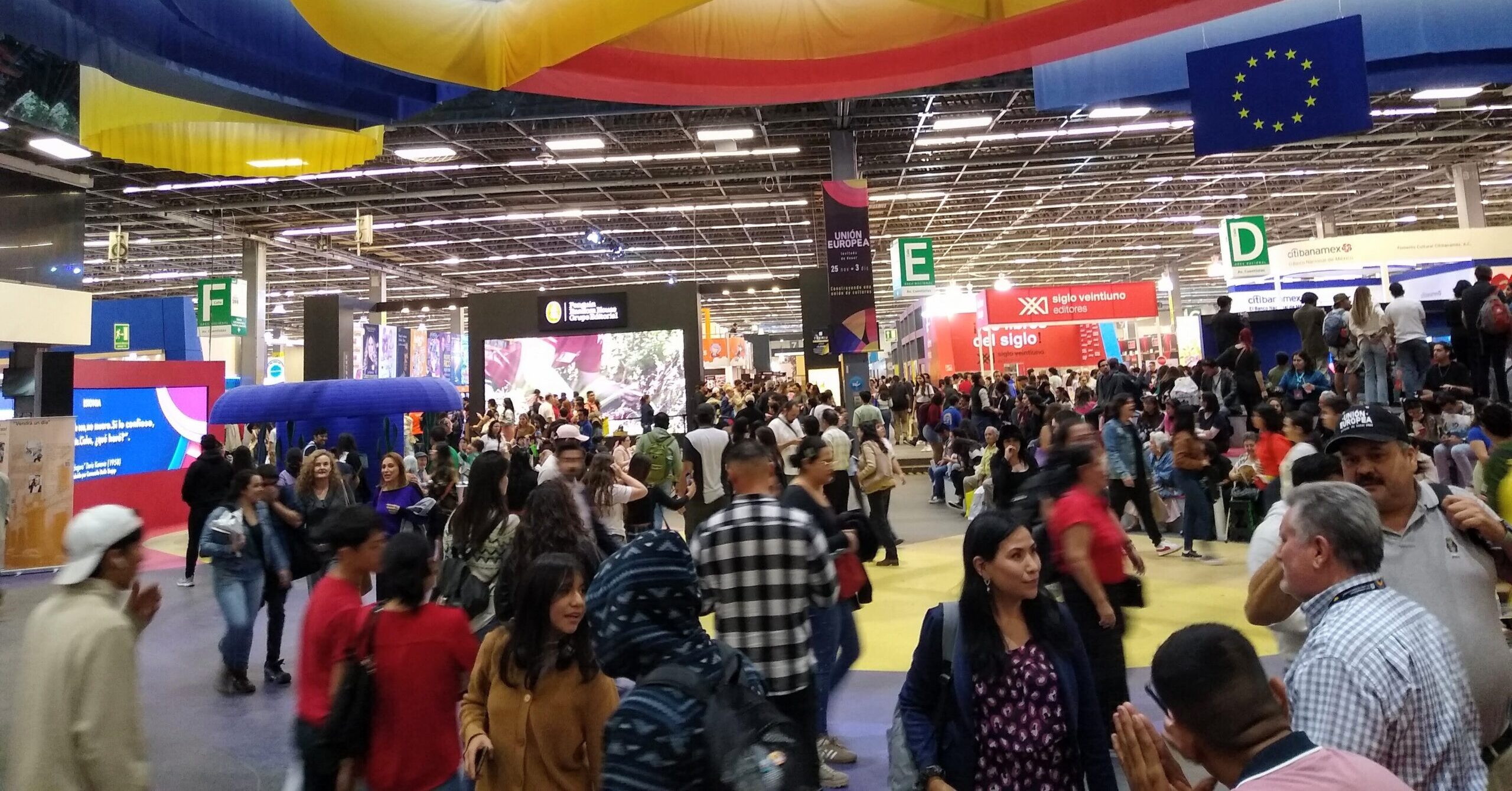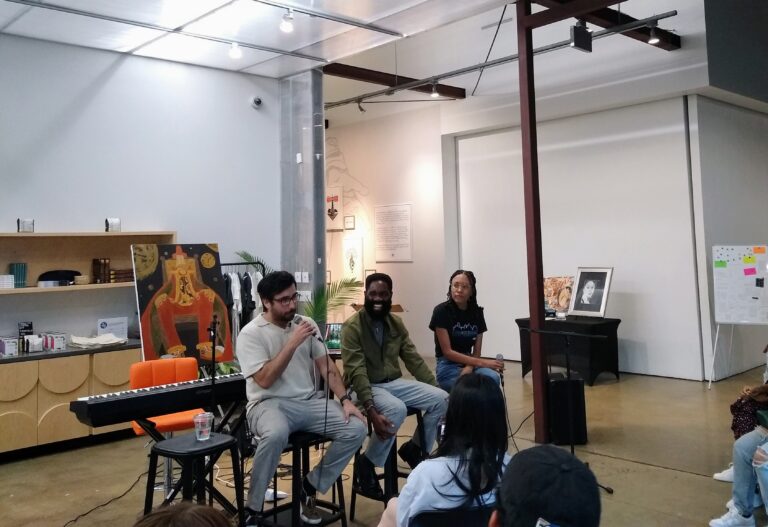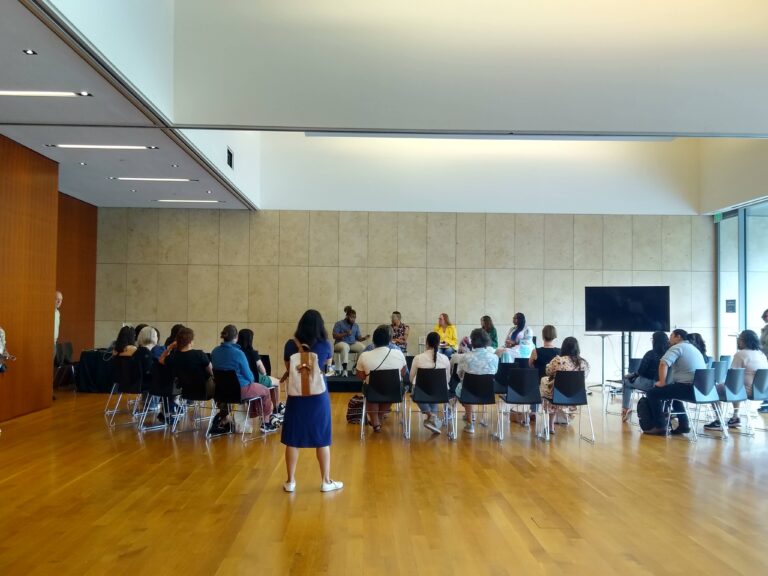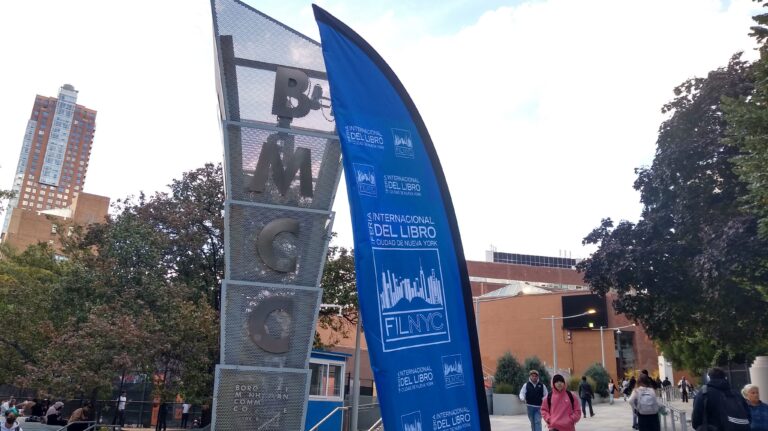FIL Guadalajara: Expanding my relationship with books
The concept of a book fair was something strange, something that belonged to my most distant memories. I recalled my childhood, the times when we were taken to a room full of beautiful books with bright covers, yet they were always out of my reach. Rather, my starting point was used bookstores. There I could be found tucked away in a small corner with books in Spanish. It was not until 2019 that I bought books in Mexico for the first time. Four years later, on November 25, 2023, I arrived where I never would have imagined – the International Book Fair (FIL) in Guadalajara, Jalisco.


The winter season in Guadalajara embraced me warmly. I felt very comfortable and even refreshed every time it drizzled. On the way to the Expo Guadalajara, I always passed a tejuino stand, a delicious drink with lemon and salt, and then another one selling snacks. Once inside the expo, everything was well lit and there were stands as far as the eye could see. The fair of my childhood had expanded to more than 700 stands, 630 book presentations, 262 literary forums, and more.
Listening to the voice behind the book
To experience the world of the International Book Fair (FIL) is to experience a multicultural environment with multilingual presentations and flags from many countries—especially since the European Union was the guest of honor. Everything was happening at the stands, such as book sales, talks, poetry readings, and even drinking beer or caipirinha. I witnessed the dichotomies of the FIL, too, from the ceremoniousness of awarding the Sor Juana Inés de la Cruz Prize for Literature to María Ospina Pizano, to a small panel in which a Mexican author, Natalia Trigo, brought us cookies. I blended into the crowd listening to the Jury’s Statement, then the author biography, followed by an acknowledgement, etc. I also found myself squeezed into a stand of a few meters to listen to Sandra Lorenzano, an Argentine Mexican author, read her poems.



I didn’t know most of the authors present, I had much less read their works. Still, it didn’t turn out to be an obstacle. I also felt comfortable without translation headphones for the bilingual presentations in English and Spanish. Nevertheless, I witnessed the frustrations and difficulties that some speakers had when speaking in a foreign language, whether English or Spanish, for a public, international event. In general, I would say that the smaller talks were the ones that were best able to humanize the speakers. I enjoyed them because they were more akin to a chat between friends, providing a comfortable space for dialogue.
Looking for books in Spanish
There was no shortage of books of all kinds represented by major publishers, whether academic, educational, or otherwise. I was inundated with options and overwhelmed by indecision (or deep down I knew I didn’t have space in my luggage). I’ve never had such a problem before. It is difficult to find books in Spanish in the U.S. Ideas and books do not circulate as much as one might think. In bookstores, the Spanish section, apart from being small, mostly has books like One Hundred Years of Solitude and translations of bestsellers originally in English. I have to admit that I’m not very fond of the selection.
I didn’t come across the used books that had formed such a part of my life until I reached the back end of the FIL. Some books were older than others, but they were all piled high—it was chaos organized by topic. The stand wasn’t as pretty as the others, with books forced into any free space. But that’s how I had always related to books. It was always a haphazard search that ended with the purchase of a book in almost total ignorance. Anyways, I left the FIL without buying a single book. Instead, I left behind one of my English books, The Divine Comedy, to give to a friend.


In used bookstores, circulation can be more varied, and there is an opportunity to find an unexpected gem. It is like the bird that sparked María Ospina Pizano’s curiosity when it landed on her balcony. The Sor Juana Prize winner had contemplated its intercontinental journey from Colombia to the U.S. She wanted to know which waters the bird had lived in and the condition of the forest from which it emerged. I also contemplate the books that land on my shelf.
The bubbles we inhabit
Perhaps one thing that the International Book Fair (FIL) accomplished for me was to make clear what readers around the world are missing. They are missing out on high-quality writing and ideas for readers of all ages (children, young people, and adults) with any interest (FIL Science, FIL Thought, etc.). However, this crack in the circulation of books and ideas doesn’t only occur between Mexico and the US, but both between Latin American countries and within the same country. In one of the “Al Ruedo!” talks, Natalia Trigo highlighted how it’s necessary to go through Mexico City to enter the literary world, but that in the process so many interesting voices get lost. Alejandro van Düben added that the same thing happens in the state of Jalisco through Guadalajara.
The only voices that rise above and emerge from their geographical bubbles are classics and bestsellers. While there is nothing wrong with circulating such books, a multitude of voices are left behind. I agree with the Portuguese author, Lídia Jorge, when she said that it’s important to have more voices than just our own. In the talk “Las palabras como instrumento de tolerancia y de apertura” (“Words as an instrument of tolerance and openness”), Lídia explained how she tries to use words as a tool against singularity.

We need to expand our bookshelves
With 61 countries represented at the International Book Fair (FIL), the issue of circulation includes but goes beyond geography, including language, regionalism, culture, and more. Thus far, I haven’t even touched upon the business and professional activities that also took place during the Fair. I would have liked to have attended more presentations to learn more, but it was impossible since there were so many of them. Nonetheless, I still have a question: How can we spread the essence of the FIL to transcend the borders on our shelves? Perhaps we can break through our isolation to grow and move forward in harmony.






One Comment